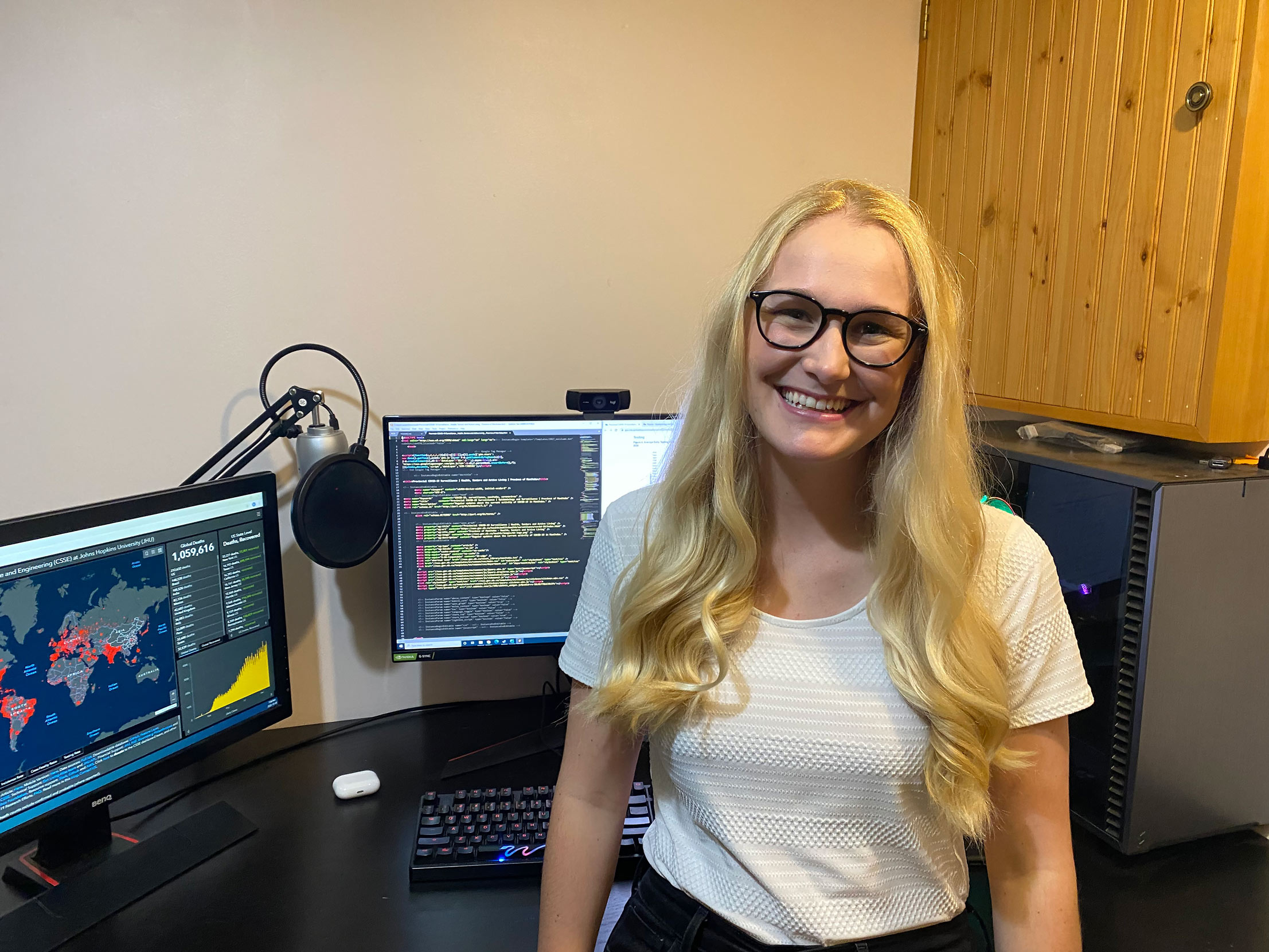Margot Henry started her post-secondary academic career studying biology at the University of Winnipeg while playing as a goalkeeper on the school’s women’s soccer team.
A few years and a few degree changes later, she holds a bachelor’s degree in statistics from the U of M, is pursing her master’s degree and is working as a junior epidemiologist amid the greatest pandemic the world has seen in a century.
Henry began her work with Manitoba Health last May as a junior epidemiologist.
She credited the job opportunity to the University of Manitoba’s science co-op program.
The science co-op program at the University of Manitoba is a program which students generally apply for in their second year of undergraduate studies.
Students accepted to the program are then able to get paid work experience in their fields as part of their degrees.
Initially, Henry had come to the U of M to pursue genetics.
“While taking genetics classes, you have to take quite a bit of stuff. [I found] I really enjoyed the stats classes.”
“So, I just dropped everything else and took only stats.”
According to Henry, her position at Manitoba Health “was very disease, biology-related and stats-related.”
“I didn’t know what really I wanted to do, but luckily I did have some [biology] under my belt because I started off that way, so why not just try some bio-stats?” she said.
Since May 2019, Henry has worked as a junior epidemiologist full-time in the summer and part-time during the academic year.
Now, she added, the position is “kind of full-time now, because it’s a pandemic. They need you.”
“Right now, everything is COVID-19-related.”
Henry works to produce reports that look at the numbers and risk factors of different demographics in the province.
“For example […] looking at the age groups getting COVID-19, which age groups are more affected, how we can stop this specific age group from getting it.”
Henry has also been working on reports on unintentional outcomes related to COVID-19.
“We’re looking at not just COVID, but everything else in Manitoba that could’ve changed because of that.”
Her reports consider doctor and ER visits along with mental health and substance usage.
On top of that work, Henry is also set to have a study published in a journal for the first time in her career.
“At the beginning of the summer, [my supervisor and I] decided to do a survival analysis on the risk factors associated with the hospitalization outcomes due to COVID-19,” she said.
The study is expected to be published in the journal Health Promotion and Chronic Disease Prevention in Canada: Research, Policy and Practice which is an official publication of the Public Health Agency of Canada.
On the topic of stress factors and problems in the face of the COVID-19 pandemic, Henry said, “the bigger stressor for me with the [COVID-19] pandemic is school.”
“The work, I can do from home. School from home?
“That one’s a pain.”
For Henry, one of the greater challenges she’s facing amid the pandemic is communication with her team while working remotely, and “making sure everyone’s on the same page and we’re all working properly on the same project.
“I’m sure half of Manitoba is having that challenge.”
She expressed her frustrations regarding the public’s responses to provincial safety recommendations.
“I wish everyone would listen to public health orders, but you can’t force people to do something they don’t want to do,” she said.
“I just wish people listened.”


